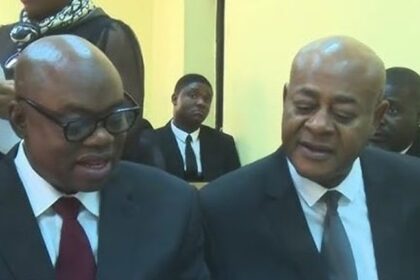The House of Representatives Joint Committee on Petroleum Resources and Finance will meet on Monday (tomorrow) to perfect arrangements for the probe of the Nigerian National Petroleum Corporation’s N24bn monthly ‘subsidy’ spending.
The Peoples Democratic Party, prominent individuals and groups in the country have asked the President Muhammadu Buhari-led Federal Government to explain how it spent N1.4tn to subsidise petrol in the last three years when the money was not part of the nation’s appropriation bills so far passed by the National Assembly.
Reacting to the development on Saturday, the House of Representatives berated the NNPC for its decision to continue to spend money on fuel subsidy under the guise of what the agency called ‘under-recovery’ without appropriation by the National Assembly.
It said the “illegality” must stop, adding that the NNPC officials would appear soon before lawmakers to explain the aspect of the corporation’s Act that allows it to spend money without appropriation.
The Chairman, House Committee on Petroleum Resources (Downstream), Mr. Joseph Akinlaja, told our correspondent that the matter had been under investigation.
He said the House had moved a step further by asking his committee and that of finance to conduct a joint investigative hearing into the issue.
Akinlaja stated, “On Monday, the joint committee will meet on this issue. We will discuss and pick a date to invite the NNPC management and all stakeholders in the oil industry.
“They should come and tell Nigerians the aspect of the law they are quoting. The committee will meet on Monday. For now, let us wait till after the public hearing.”
But the NNPC says there is an existing law backing the N24bn it spends every month to augment the differential between the landing cost of petrol and the approved pump price at filling stations.
The Group General Manager, Public Affairs Division of the NNPC, Mr. Ndu Ughamadu, who stated this in an interview with our correspondent on Friday, explained that the payment, tagged ‘under-recovery regime on petrol’, was supported by the NNPC Act.
Reacting to the concerns of Nigerians on the issue, Ughamadu said the NNPC had no right to pay subsidy on petrol but was empowered by law to augment the shortfall between the landing cost and the retail price.
He defined under-recovery on PMS as “the amount which the oil firm does not recover after importing and selling petrol because the landing cost of the commodity is higher than its retail price at filling stations across the country.”
Ughamadu added, “We’ve established the platform to show how the figures we arrived at were got since we started experiencing under-recovery. And we never called it subsidy. Under-recovery is in line with the NNPC Act and our credit policy.
“We also said if the consumption is at a certain level, this is what the landing cost is and this is what the corporation might be experiencing as a result of under-recovery.
“In all our presentations, we never said ‘subsidy’ because we know that it is only the National Assembly that can approve subsidy.”
Marketers, as well as the Group Managing Director of the NNPC, Maikanti Baru, in December last year, confirmed that the price of petrol in the international market had risen above the regulated retail price for which the commodity was sold at petrol stations in Nigeria.
Baru had revealed that the landing cost of petrol was N171.4 per litre, which was also confirmed by the Executive Secretary, Depot and Petroleum Products Marketers Association, Olufemi Adewole.
Baru said, “The landing cost moves with the CIF (Cost, Insurance and Freight) price of PMS. As of Friday, the CIF price was in the neighbourhood of $620 per metric tonne.
“With the official exchange rate of N305 to the dollar, the landing cost should be N171.40 per litre.”
Confirming the GMD’s statement, Adewole had also said, “The import price of petrol is about N170 per litre. NNPC, which absorbs the attendant subsidy on behalf of the Federal Government, is the importer of last resort.”
Ughmadu, however, dashed the hopes of Nigerians when he told our correspondent that NNPC had been incurring under-recovery on petrol importation and could not tell how long it would last.
He said since only the National Assembly had the power to appropriate on fuel subsidy, it would be illegal for the corporation to start subsidising the Premium Motor Spirit, popularly known as petrol.


